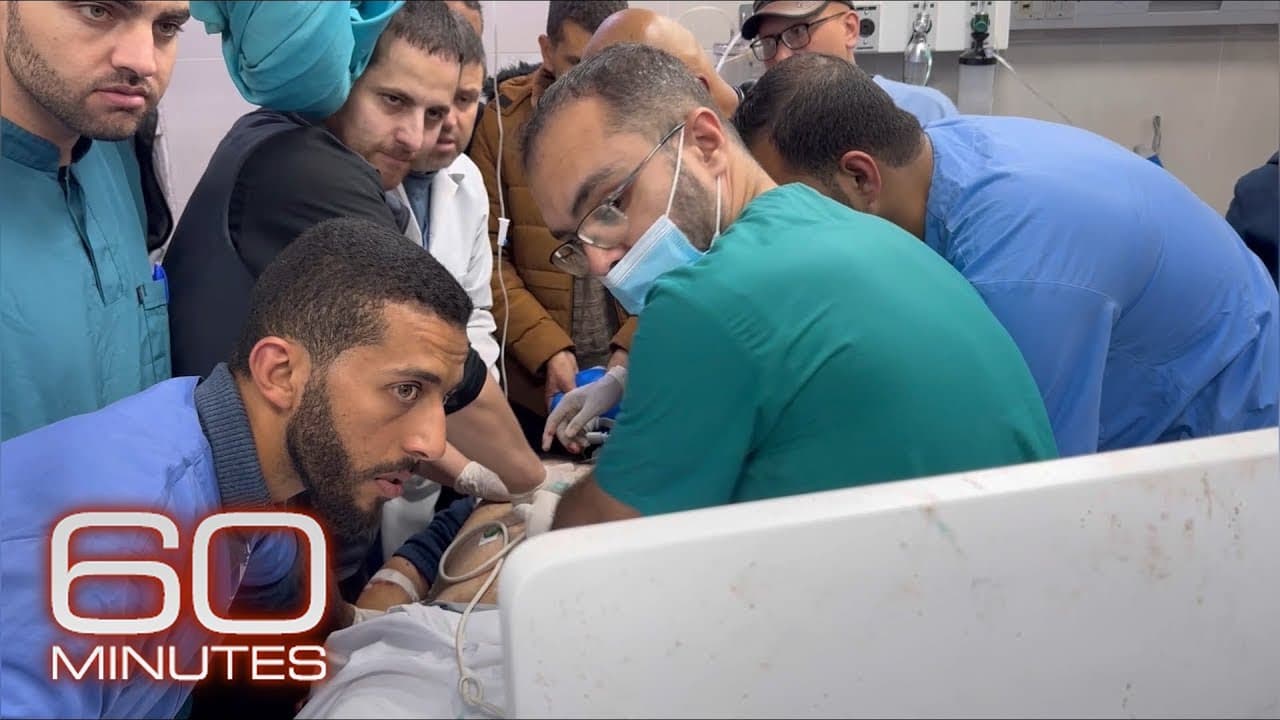142 Days in Gaza; An American in China | 60 Minutes Full Episodes
28 Feb 2024 (1 year ago)

Gaza Humanitarian Crisis
- The United Nations reported a catastrophic humanitarian crisis in Gaza, but Israel restricted journalists' access to the area.
- Aid workers, including Americans Dr. Narina Amed and Scott Anderson, shared the challenges of providing medical care amidst the conflict.
- The Gaza Ministry of Health estimated 12,000 children's deaths since the war began, with hospitals under siege and patients facing life-threatening conditions.
- The International Red Cross highlighted denied access to many areas, hindering emergency medical services and trapping people in dangerous situations.
- Satellite images revealed two-thirds of Gaza flattened, displacing nearly 2 million residents to overcrowded shelters or makeshift camps.
- Kerem Shalom, the sole border crossing from Israel for humanitarian aid, saw a significant reduction in aid trucks, exacerbating shortages.
US-China Relations
- The US-China relationship is strained due to China's actions toward Taiwan, intellectual property theft, and an expanded Espionage law.
- China's economy is slowing down, with export growth slowing, increasing debt, and soaring youth unemployment.
- American companies are concerned about the business climate under President Xi Jinping, who reversed market reforms that fueled China's economic growth.
- China lost over $120 billion in long-term foreign investments due to the weakening economy and government tactics.
- Some American companies are relocating to other countries, but most remain in China due to its massive market.
- Despite challenges, China has a strong manufacturing base and leads in solar panels, wind turbines, and electric vehicles.
- Chinese companies are investing heavily in research and development, becoming increasingly competitive with Western companies.
China's Technological Advancements
- Alex Goo, founder of Forier Intelligence, created the GR1 humanoid robot, capable of playing the piano and providing healthcare services.
- President Xi Jinping called for mass production of humanoids by 2025, aiming to double the economy by 2035 and surpass Western technology.
- China and the US compete in AI, biotech, and quantum mathematics, leading to advancements in military technology.
US-China Tensions
- Despite efforts to reestablish military communications, tensions persist, with incidents like the spy balloon, military base buildup in the South China Sea, and increased air activity near Taiwan.
- China's economic strength, surpassing the Soviet Union during the Cold War, challenges the US, leading to a "battle of ideas" between democratic and communist ideologies.
- The US-China competition extends beyond military power, encompassing a contest of ideas and values, with the US emphasizing democratic society and human freedom, while China promotes the strength of a communist state.
US-Mexico Border
- The US southern border sees an influx of migrants, including Chinese nationals, entering illegally through gaps in the border fence.
- The Mexican government responded by placing new outposts near the gaps to block the entry of Chinese and other migrants.